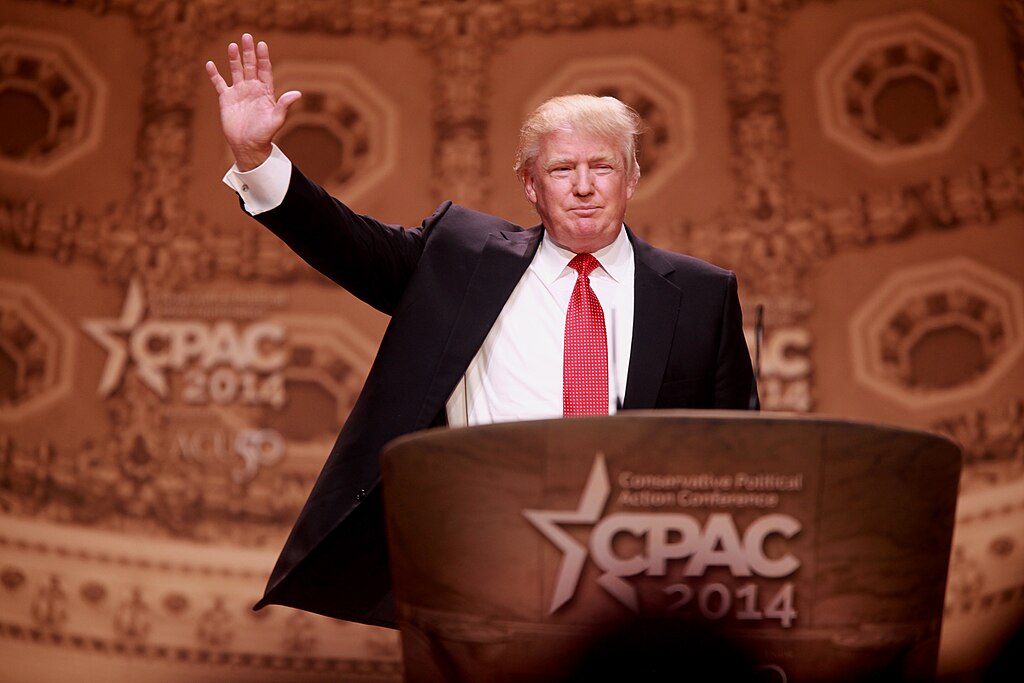President Donald Trump’s approach to climate agreements in 2025 has reignited debates on environmental policy and global cooperation. His administration has doubled down on its criticism of international climate treaties, framing them as detrimental to the U.S. economy while advocating for an “America First” energy strategy.
A Sharp Departure From Global Climate Pacts
Trump’s administration has firmly reiterated its opposition to rejoining the Paris Agreement, a global accord aimed at limiting temperature rise through collective carbon reduction. In a recent address, the president emphasized that the treaty “undermines American sovereignty” and unfairly burdens U.S. taxpayers.
“America will not be held hostage by international bureaucracies that fail to hold major polluters like China accountable,” Trump stated during a rally in Texas. Instead, the administration has proposed a domestic-focused energy plan prioritizing fossil fuels, deregulation, and investment in coal and oil production.
Critics argue that this approach signals a retreat from global leadership on climate issues. The administration’s decision to withdraw funding for climate adaptation programs in developing countries has also sparked international backlash.
Criticism Over Domestic and Global Impacts
Environmental advocates and climate experts have sharply criticized Trump’s stance, warning of severe consequences for both the U.S. and the planet. They argue that withdrawing from global climate efforts undermines progress on reducing greenhouse gas emissions and leaves vulnerable nations at greater risk of climate disasters.
“Turning our backs on the Paris Agreement is not just a failure of leadership; it’s a betrayal of future generations,” said Michael Brune, executive director of the Sierra Club.
Proponents of Trump’s policy, however, contend that prioritizing domestic energy independence and reducing reliance on foreign oil will create jobs and bolster the economy.
Public Reactions: Divided Opinions on Climate Policy
The president’s climate stance has sparked intense debate online, with netizens weighing in on its implications:
-
@GreenWarrior2025: “Ignoring climate agreements is reckless and short-sighted. The world needs cooperation, not isolationism, to tackle this crisis.”
-
@MAGA4Life: “Finally, a president who puts America first! Why should we pay for other countries’ pollution problems?”
-
@EcoTruthNow: “Trump’s climate policy will make the U.S. a global pariah. Leadership means stepping up, not stepping back.”
-
@PatriotEnergyUSA: “Drill, baby, drill! Energy independence is key to national security and economic prosperity.”
-
@FuturePlanet2025: “We’re running out of time to act on climate change. Trump’s policies are a disaster for everyone.”
-
@CommonSenseNow: “Why should hardworking Americans foot the bill for countries that don’t take their emissions seriously?”
What’s Next for U.S. Climate Policy?
As the administration pushes forward with its energy agenda, legal battles and state-led climate initiatives are expected to shape the national discourse. Several states, including California and New York, have vowed to uphold Paris Agreement commitments independently.
Despite the controversy, Trump remains resolute in his belief that climate policies should prioritize American interests. However, critics caution that the long-term costs of inaction on climate change could outweigh any short-term economic gains.



 Australia Rules Out Military Involvement in Iran Conflict as Middle East Tensions Escalate
Australia Rules Out Military Involvement in Iran Conflict as Middle East Tensions Escalate  U.S.-Israel Strike on Iran Escalates Middle East Conflict, Trump Claims Khamenei Killed
U.S.-Israel Strike on Iran Escalates Middle East Conflict, Trump Claims Khamenei Killed  UK Accepts U.S. Request to Use British Bases for Defensive Strikes on Iranian Missiles
UK Accepts U.S. Request to Use British Bases for Defensive Strikes on Iranian Missiles  Suspected Drone Strike Hits RAF Akrotiri Base in Cyprus, Causing Limited Damage
Suspected Drone Strike Hits RAF Akrotiri Base in Cyprus, Causing Limited Damage  Trump Launches Operation Epic Fury: U.S. Strikes on Iran Mark High-Risk Shift in Middle East
Trump Launches Operation Epic Fury: U.S. Strikes on Iran Mark High-Risk Shift in Middle East  AI is already creeping into election campaigns. NZ’s rules aren’t ready
AI is already creeping into election campaigns. NZ’s rules aren’t ready  Argentina Tax Reform 2026: President Javier Milei Pushes Lower Taxes and Structural Changes
Argentina Tax Reform 2026: President Javier Milei Pushes Lower Taxes and Structural Changes  Israel Declares State of Emergency as Iran Launches Missile Attacks
Israel Declares State of Emergency as Iran Launches Missile Attacks  Trump Says U.S. Combat Operations in Iran Will Continue Until Objectives Are Met
Trump Says U.S. Combat Operations in Iran Will Continue Until Objectives Are Met  Does international law still matter? The strike on the girls’ school in Iran shows why we need it
Does international law still matter? The strike on the girls’ school in Iran shows why we need it  Trump Warns Iran as Gulf Conflict Disrupts Oil Markets and Global Trade
Trump Warns Iran as Gulf Conflict Disrupts Oil Markets and Global Trade  U.S. Deploys Tomahawks, B-2 Bombers, F-35 Jets and AI Tools in Operation Epic Fury Against Iran
U.S. Deploys Tomahawks, B-2 Bombers, F-35 Jets and AI Tools in Operation Epic Fury Against Iran  Pentagon Leaders Monitor U.S. Iran Operation from Mar-a-Lago
Pentagon Leaders Monitor U.S. Iran Operation from Mar-a-Lago  Netanyahu Suggests Iran’s Supreme Leader Khamenei May Have Been Killed in Israeli-U.S. Strikes
Netanyahu Suggests Iran’s Supreme Leader Khamenei May Have Been Killed in Israeli-U.S. Strikes  Middle East Conflict Escalates After Khamenei’s Death as U.S., Israel and Iran Exchange Strikes
Middle East Conflict Escalates After Khamenei’s Death as U.S., Israel and Iran Exchange Strikes  Russia Signals Openness to U.S. Security Guarantees for Ukraine at Geneva Peace Talks
Russia Signals Openness to U.S. Security Guarantees for Ukraine at Geneva Peace Talks  Israel Launches Fresh Strikes on Iran After Death of Supreme Leader Ayatollah Khamenei
Israel Launches Fresh Strikes on Iran After Death of Supreme Leader Ayatollah Khamenei 
































